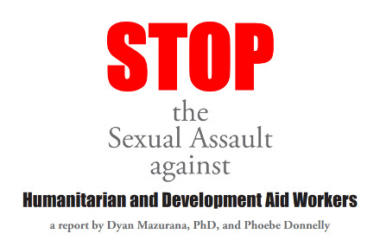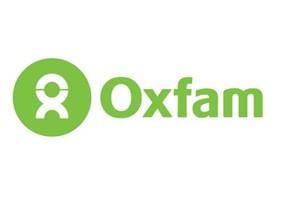A study produced last year has shown widespread sexual assault and harassment of workers within the aid sector
The report, Stop Sexual Assault against Humanitarian and Development Aid Workers, has been publicised in the wake of the Oxfam safeguarding scandal.
It was published in May 2017 by the Feinstein International Center, parts of Tufts University in Massachusetts, United States. The report was produced by Dyan Mazurana and Phoebe Donnelly.
Mazurana appeared on Newsnight on Tuesday night where she where she revealed that problems with safeguarding were “widespread throughout the sector” but Oxfam had actually been shown in the report as an example of “best practice” which other organisations can learn from.
She said: “I’m concerned by the heat Oxfam is taking now as it looks like this is an Oxfam problem, but this is industry wide.”
‘Grossly underreported'
The report found that sexual harassment and assault of female aid workers appears widespread, yet it remains “grossly underreported and under-acknowledged”.
It also found that the majority of perpetrators of both sexual harassment and sexual assault are men working in the aid industry, often those in supervisory or higher-level positions compared with their victims, or are men employed by aid agencies as security providers.
The report said perpetrators are also from armed forces and groups and civilians within the area where the aid workers are operating.
The report found that “lesbian, gay, bisexual, and transgender (LGBT) aid workers reported sexual identity harassment, blackmail, threats, and assaults against them, primarily by men working in the aid industry or security providers employed by aid agencies”.
It also said that a “macho form of masculinity dominates the humanitarian relief space”.
The report has also found that victims and survivors often do not report experiencing sexual harassment and assault "out of concern that they will be blamed or punished by their agency".
How agencies prevent and respond
The report found not many agencies have formal policies and procedures for prevention, security training, investigation and response to sexual assault against aid workers. Of these few, interviewees reported a lack of enforcement of these policies and procedures.
It found that sexual assault is given “little if any time during actual training sessions”, and said that “an attitude of treating sexual assault as ‘not a serious or real issue’ was reported by those discussing training materials and trainings”.
It also found that “under-reporting of sexual harassment and assault is widespread”.
Oxfam ‘best practice’
However Oxfam, which is currently facing a backlash over the way it dealt with sexual harassment and sexual abuse concerns that were raised with the charity, is actually described as an example of “best practice” in the report.
It states: “Oxfam’s careful approach to addressing sexual harassment and assault against aid workers, through their Safeguarding Department, is shared as a best practice, and we encourage other agencies to develop more robust responses to preventing and responding to this violence.”
Recommendations
The report makes several recommendations that it directs at national and international humanitarian and development agencies, and governments, foundations, and other donors that support these organisations and agencies, as well as the United Nations.
These are:
- Create workplace environments free from sexual discrimination, harassment, and assault.
- At the agency level, develop, promote and enforce policy, training, and protocol for preventing and responding to sexual harassment and assault.
- Screening staff at all levels to ensure “people are physically, psychologically, and emotionally able to handle the high-stress environments where aid workers operate”.
- Ensure protocols for response are up-to-date and that all staff are aware of them, and that all workers receive training that addresses sexual assault, as well as ensuring that all leaders receive this training, and are held accountable where they fail to do so.
- Hold senior-level officials accountable should they not ensure high quality investigation or fail to enact punitive measures where recommended by the investigative team.
- Ensure high quality, ethical, and lawful treatment of victims/survivor
- At the global level, develop high quality, standardized approaches to prevent and address sexual discrimination, harassment, and assault
- Address knowledge gaps
|
Related articles











